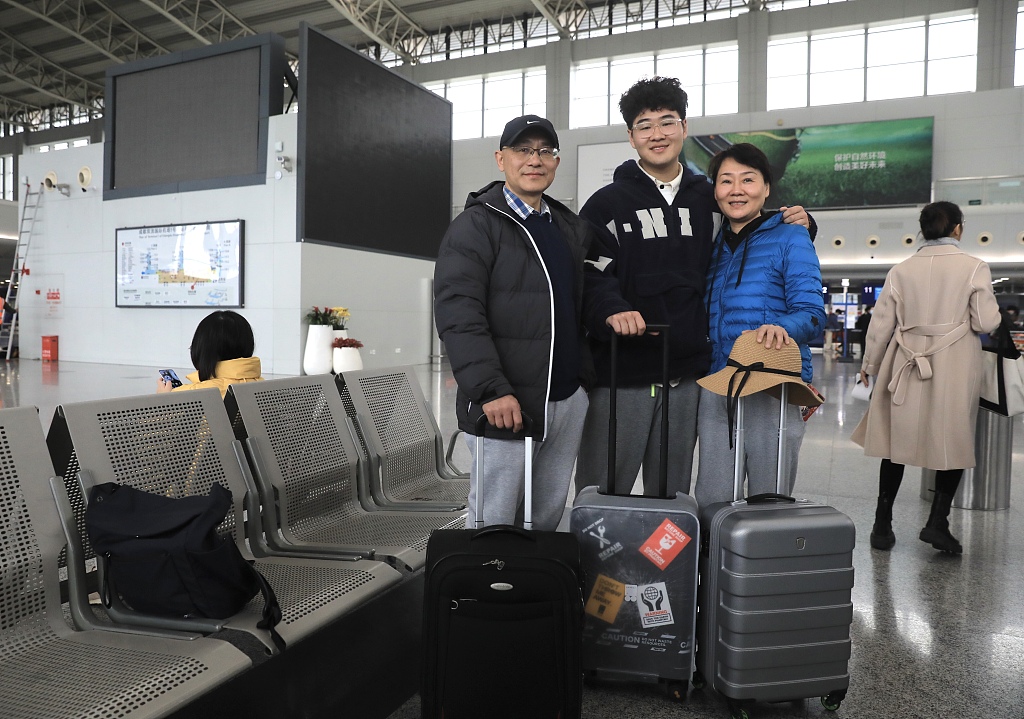China resumed a pilot program of national travel agencies and online travel companies operating outbound group tours and "air ticket + hotel" business for Chinese citizens on Monday. The list of 20 pilot countries includes Thailand, Indonesia and Cambodia. Outbound tourism teams across the country set off one after another from all over the country on the same day.
The first outbound tourist group from east China's Shanghai to Phuket, Thailand departed from Pudong International Airport on Monday. The border inspection at Shanghai Airport has opened a special channel to guide passengers to quickly pass through customs, which greatly facilitates the passage of tourists.
Zhou Weihong, a manager at a tourism company, told Chinanews that with the resumption of outbound group tours, the number of consultations on related businesses has soared.

Chen and her family departed for Phuket, Thailand. /CFP
Chen and her family departed for Phuket, Thailand. /CFP
On the same day, passengers from Chengdu Shuangliu Airport, southwest China's Sichuan Province also departed for Phuket, enjoying their first outbound trip in three years. "We have brought swimsuits, beach pants and sunscreen and are looking forward to Phuket's sunny beaches and seafood barbecues." Chen, a mom who was traveling with her family, told Chinanews.
Zhang Nan, deputy director of the Chengdu office of the Tourism Authority of Thailand, made a special trip to the airport's departure hall to see off the plane. Zhang said after China announced policies related to outbound tourism, Thai tourism companies are ready to welcome Chinese tourists to Thailand.
Many travel agencies in Chengdu have formed outbound tour groups, and popular destinations are concentrated in Thailand, Singapore, Malaysia, and other places.
"The recovery of the entire outbound group tour will take a relatively long process," said Tang Xiaoyun, vice president of China Tourism Academy.
The tourism industry must be aware that the confidence of tourists will take some time to restore, including concerns about the epidemic and the cost of products and services, Tang explained.